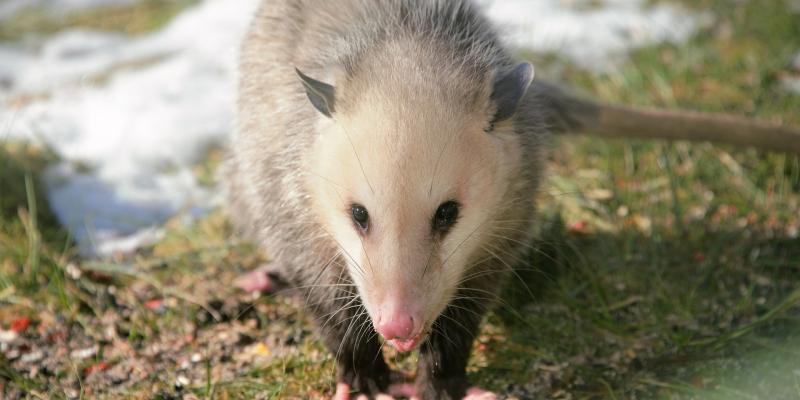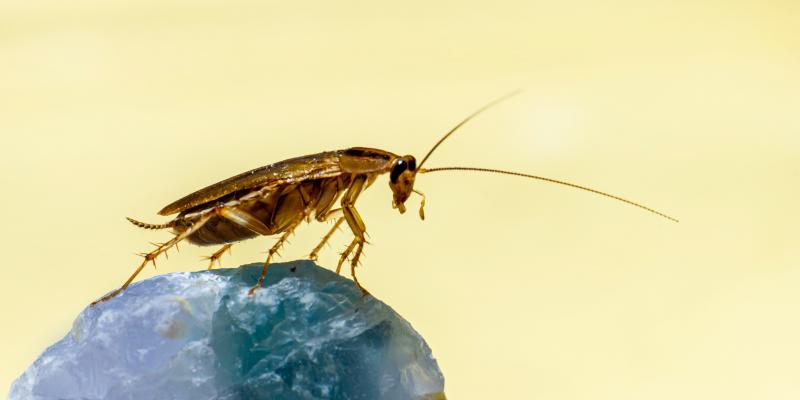
As summer rolls in, so do the mosquitos, turning outdoor fun into a battle against these disease-carrying pests.
Ditching the chemicals for natural repellents? Ingredients like citronella and eucalyptus oil might be your new best friends.
But do they really work? Let’s dive into the world of natural mosquito fighters and find out how you can enjoy your summer nights, bite-free and eco-friendly.
For persistent issues, professional mosquito control specialists in Baton Rouge offer eco-friendly options and support for families seeking relief.
Key Takeaways
- Plant-based essential oils like citronella, catnip, and lemongrass are effective natural mosquito repellents.
- DIY applications of these oils include mixing with carrier oils for skin application or using diffusers for area protection.
- Safety practices like patch testing and concentration checks are crucial when using natural repellents to avoid skin irritation.
- Beyond repellents, environmental and personal protective measures can significantly reduce mosquito presence and bites.
- Professional pest control services provide an added layer of defense against mosquitoes by reducing populations and preventing breeding.
10 ESSENTIAL OILS OF MOSQUITO-REPELLENT PLANTS
Plant-based essential oils contain natural ingredients that can repel mosquitoes with efficacy that rivals synthetic options.
Here are ten essential oils derived from various plants, according to our mosquito exclusion specialists in New Orleans. Each essential oil has unique properties that make it stand out in the fight against these pesky insects.
1. Citronella Oil
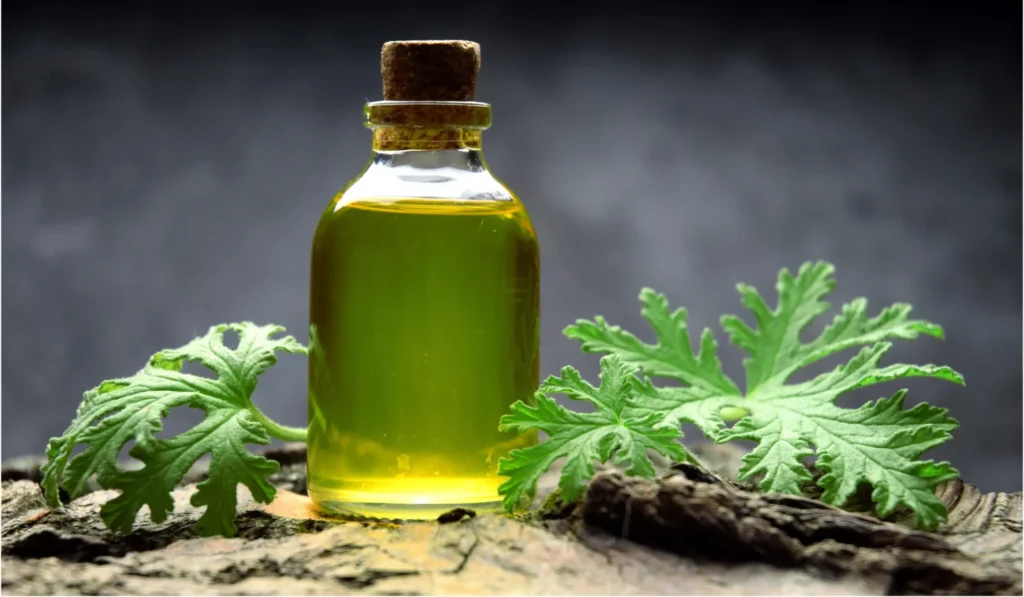
Citronella oil is a popular natural mosquito repellent obtained from the leaves and stems of lemongrass. Research supports its repellent activity, which makes it a staple in natural insect repellents.
Its lemony scent is often used in mosquito-repellent products to keep outdoor areas mosquito-free. It includes:
- Citronella candles
- Citronella sprays
- Citronella skin lotions
2. Catnip Oil
Catnip oil (Nepeta cataria) contains nepetalactone, which is surprisingly more effective than DEET in some cases.
It provides an excellent mosquito-repellent option. It can be quickly grown and processed for personal oil extraction.
| Quick Facts | Detail |
| Repellency | Stronger than DEET |
| Extraction | Simple, can be done at home |
| Application | Personal use, diffusers, skin products |
3. Lemongrass Oil
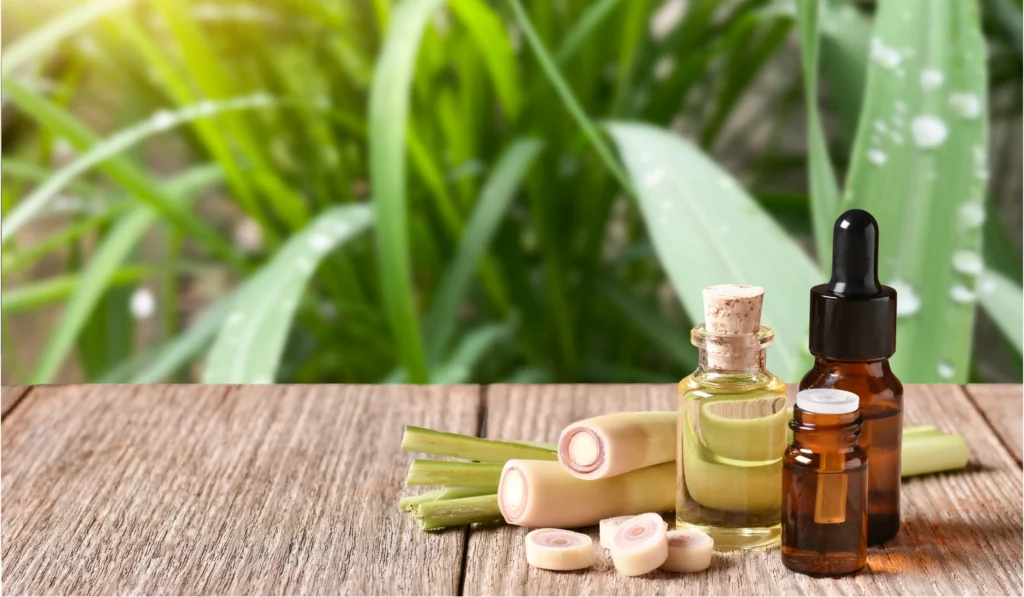
Lemongrass oil has a strong citrus smell that repels mosquitoes. It’s easy to grow in places like Louisiana. It can be used to create personal repellents or diffused in outdoor areas.
You can follow these steps to extract its oil for hours of protection:
- Cultivate lemongrass plant.
- Harvest and dry leaves.
- Press to extract the essential oil.
- Store in airtight containers.
4. Cinnamon Oil

Cinnamon oil repels mosquitoes and can eliminate mosquito eggs. It’s valued in various repellent forms. Here’s how it compares to other natural oils:
| Natural Oil | Repellent Activity | Egg Killing Power |
| Cinnamon | High | Yes |
| Citronella | Moderate | No |
| Peppermint | Moderate | No |
5. Clove Oil
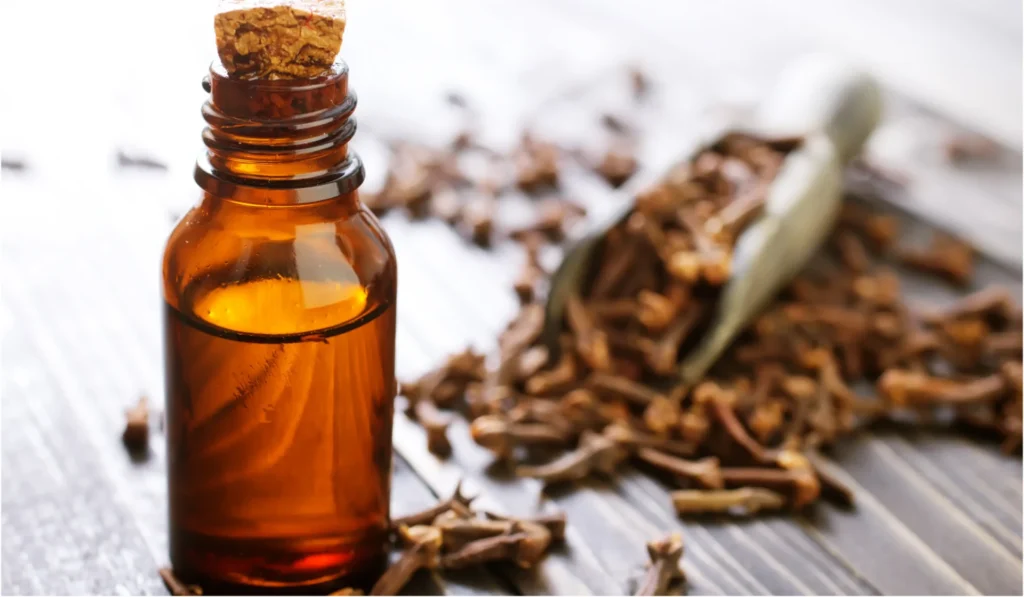
Clove oil contains eugenol, a compound with significant mosquito-repellent properties. However, it should not be applied directly to the skin in its undiluted form, as this may irritate.
Here’s how you can make your DIY repellent insecticide blend:
- Mix 1 part Clove Oil with 10 parts carrier oil.
- Add a few drops of citrus oil for scent.
- Apply on the skin to repel mosquitoes.
6. Neem Oil
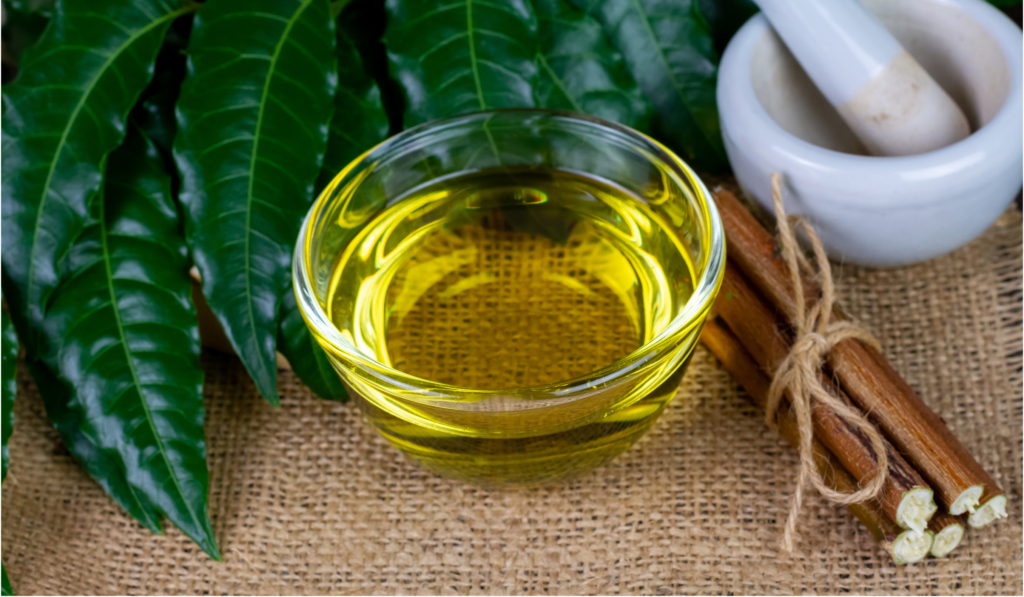
Neem oil is an ancient, natural medicinal oil that is a powerful mosquito repellent. Studies support its effectiveness in keeping mosquitoes at bay, particularly in outdoor applications.
Here’s how you transform neem leaves into the versatile neem oil you can use:
| Process | Description |
| Harvesting | Gather neem leaves from the tree |
| Crushing | Crush leaves to form a paste |
| Extracting | Press paste to release the oil |
| Purifying | Filter oil for impurities |
7. Peppermint Oil
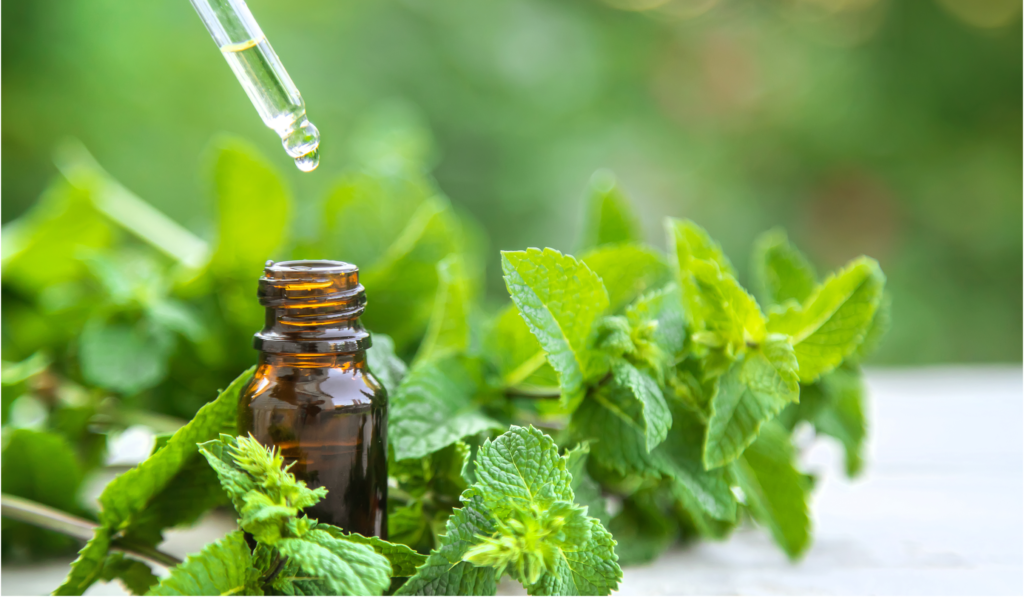
Peppermint oil is known for its cooling sensation, serving dual purposes: repelling mosquitoes and soothing bug bites.
As homeowners, you can grow peppermint plants in Louisiana’s warmer climates. Here’s how to use the extracted oil:
- Gather peppermint leaves.
- Crush leaves and extract oil.
- Mix with water and carrier oil.
- Bottle and spray as needed.
8. Geranium Oil
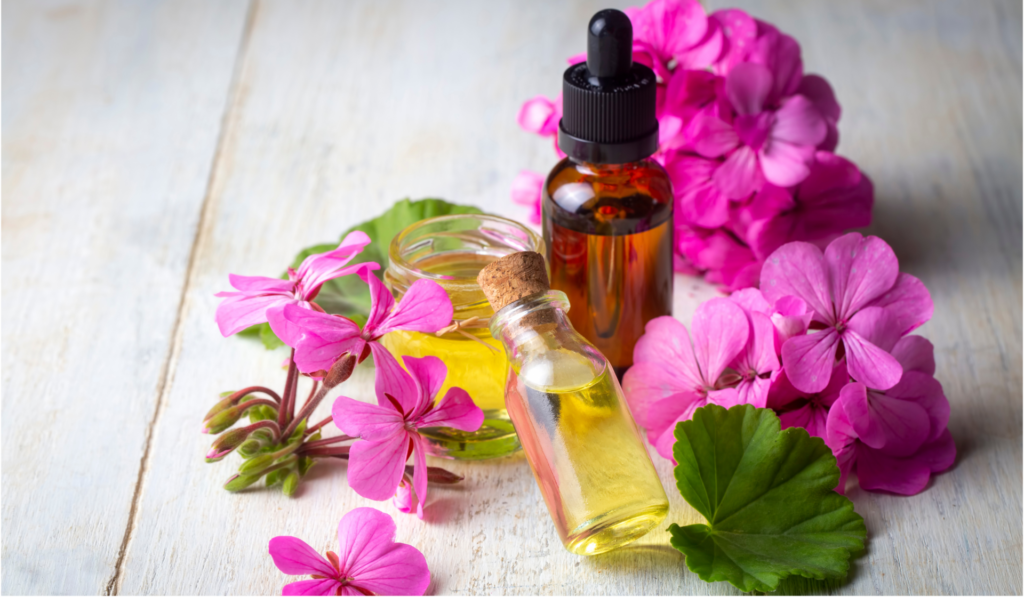
Geranium oil, precisely the lemon-scented variety, is a natural mosquito repellent that can be mixed with other oils to increase effectiveness.
Here’s how different mosquitoes react to specific oil scents and their repellency effectiveness.
| Mosquito Species | Oil Preference | Repellency |
| Aedes | Lemon-scented oils | High |
| Anopheles | Herbal-scented oils | Moderate to high |
9. Tea Tree Oil
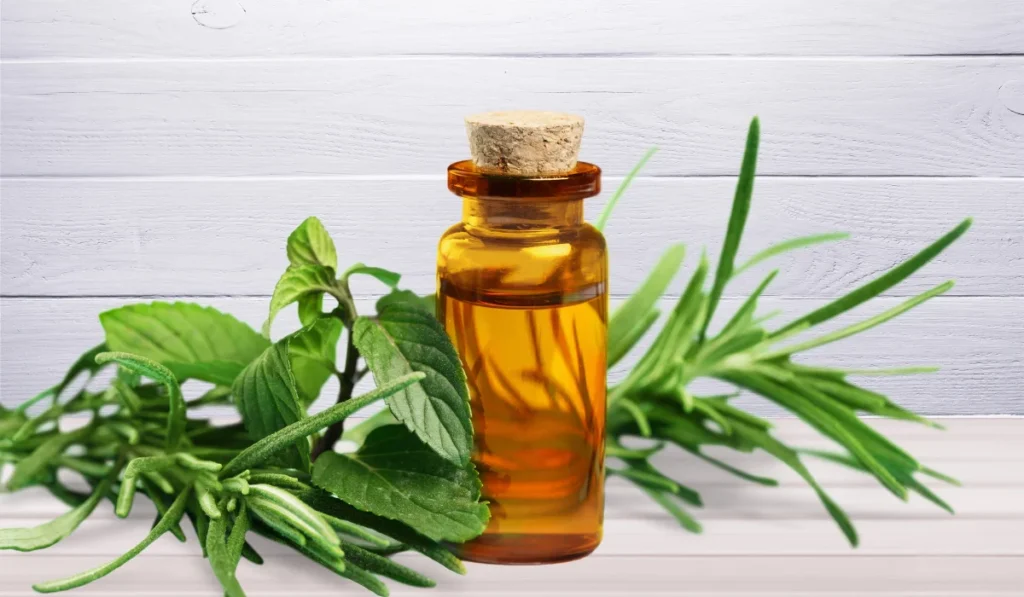
Tea tree oil has antiseptic properties, which help repel mosquitoes and treat bites. It’s integral to skincare routines designed to ward off insects.
To make the most of tea tree oil’s mosquito-repelling benefits, follow these simple steps for safe and effective application:
- Start with clean, dry skin
- Apply carrier oil as a base
- Add a few drops of Tea Tree Oil
- Reapply as necessary for protection
10. Oil of Lemon Eucalyptus
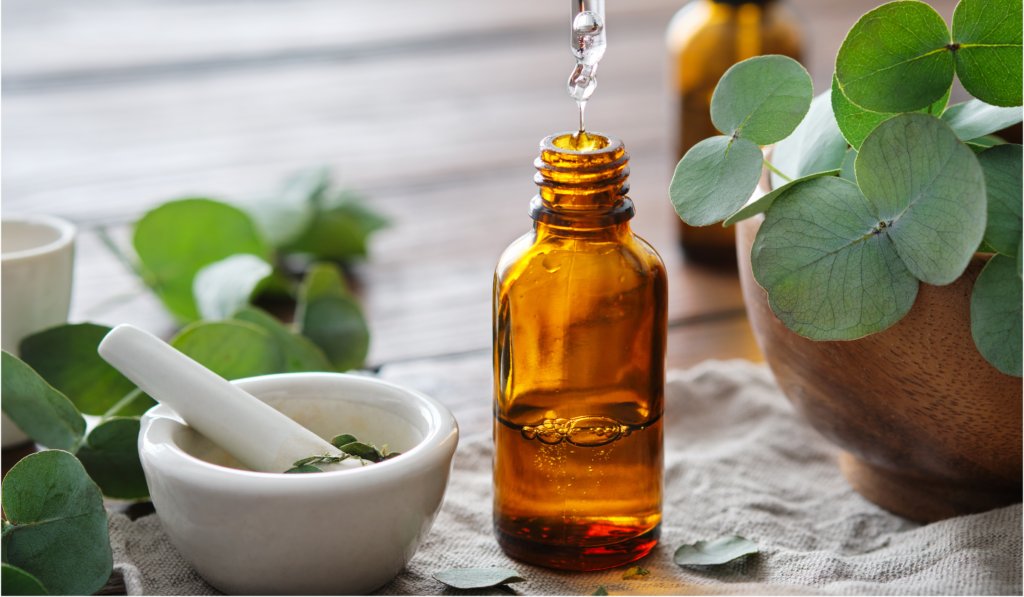
The Environmental Protection Agency (EPA) recognizes Lemon Eucalyptus oil as an effective mosquito repellent.
It contains p-methane-3,8-diol (PMD), a natural compound that repels mosquitoes. It is a solid alternative to synthetic repellents.
Here’s how the Oil of Lemon Eucalyptus stands against synthetic options like DEET:
| Repellent Type | Safety | Environmental Impact | Effectiveness |
| Oil of Lemon Eucalyptus | High | Low | High |
| Synthetic (e.g., DEET) | Moderate | Higher | High |
PROFESSIONAL PEST CONTROL SERVICES
In Louisiana, professional services can offer relief when there’s a heightened risk of mosquito-borne diseases like Zika, dengue, or West Nile.
At LaJaunie’s Pest Control, we provide mosquito treatments that hold up after rainfall. Here’s how our approach works to ensure your property is protected:
1. Mosquito Population Reduction
- Treatment Efficacy: Each application significantly reduces the mosquito population on your property, targeting the existing mosquitoes directly.
- In2Care System: Implements the In2Care system to disrupt breeding in standing water within ~4500 sq ft of the system’s placement, ensuring continuous population control.
2. Full Yard Protection
- Monthly Fogging: Routine fogging services create an unwelcoming environment for mosquitoes, adding an extra layer of protection.
- Neighboring Barrier: Monthly fogging and the In2Care system deter mosquitoes from neighboring properties from establishing themselves on your property.
3. Eliminating Breeding Conditions
- Habitat Modification: Our technicians will identify and advise on modifying areas that may encourage mosquito infestations, often without extra pesticides.
- Preventive Advice: By addressing these conducive conditions, we can significantly lower the chances of a mosquito infestation.
4. Sterilization Techniques
- Biological Sterilization: The In2Care system employs biological sterilization pellets to halt the mosquitoes’ growth and reproductive cycles.
- Safe and Effective: These pellets are safe for use around pets and aquatic life, including fish, providing an eco-friendly solution to mosquito control.
WHEN TO CALL THE MOSQUITO EXPERTS?
Sometimes, despite your best efforts, you find yourself hosting a buzzing backyard bonanza that’s a bit more exclusive than you’d like - meaning it’s just you and a legion of mosquitos.
That’s when it might be time to phone in the pest control professionals.
Wherever you’re in Louisiana, seeking expert help should be easy. For immediate intervention for a severe infestation, let LaJaunie’s specialists in mosquito control tailor a solution that’s right for your home.
For more information about the areas we service, visit our location page.













